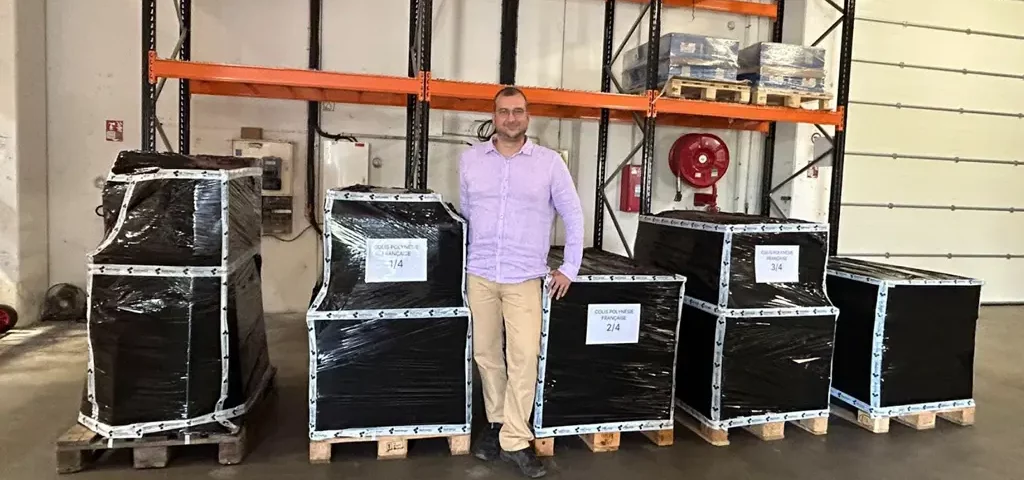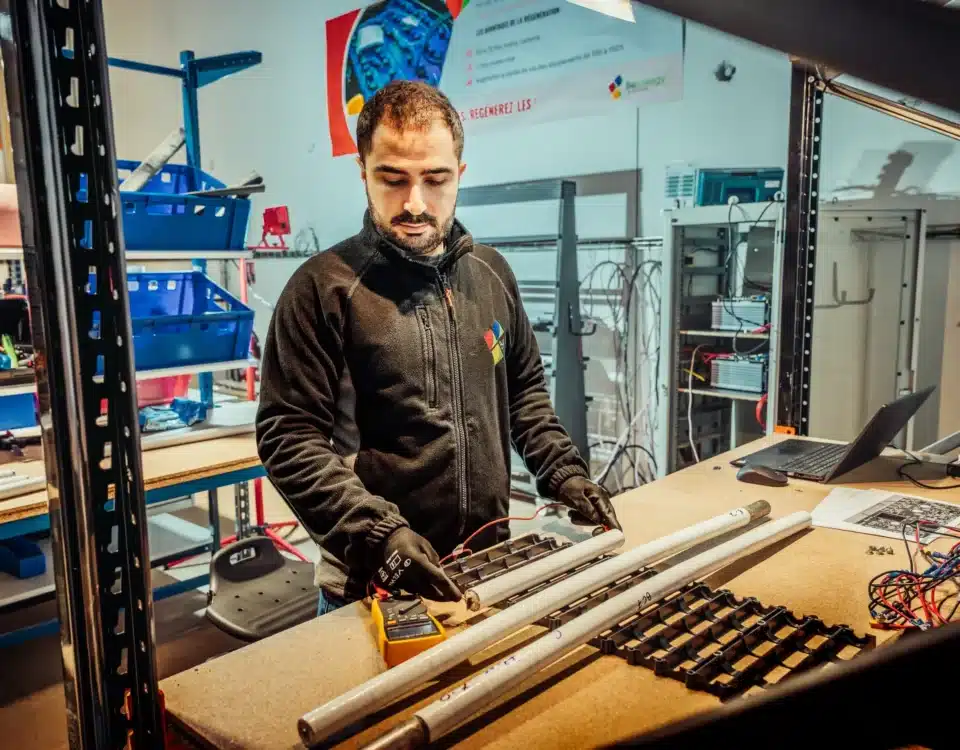
Be Energy, innovation leader in the regeneration of self-charging hybrid batteries
13 August 2024
Battery regeneration: a strategic lever to meet the requirements of the CSRD and ESRS standards
24 October 2024In French Polynesia, the lack of local recycling channels makes the management of used batteries costly and environmentally problematic.
The opening of the Be Energy center in Tahiti marks a significant milestone in the ecological transition in French Polynesia. By responding to the complex challenges of battery management, the center provides a localized and sustainable solution, essential for an island territory facing specific environmental and economic challenges.
Battery management: a key issue for French Polynesia
French Polynesia's ecological transition heavily relies on the development of renewable energy sources such as solar and wind power. However, the intermittent nature of these energy sources necessitates the implementation of reliable storage solutions, with batteries playing a central role. Nevertheless, managing batteries at the end of their life presents a major challenge.
In Polynesia, the lack of local recycling facilities for batteries often means that this waste has to be exported to other countries, a solution that is both expensive and environmentally damaging. This problem is compounded by the archipelago's geographical isolation and specific climatic conditions, which accelerate the degradation of batteries and complicate their transport and treatment.
Be Energy: a sustainable and innovative approach
The Be Energy center in Tahiti is responding to these challenges with an innovative solution: battery regeneration. Equipped with state-of-the-art technologies, including the BRT MAXI GOLD, the center is able to extend the life of lead batteries, reducing the need to landfill or export them. This method of regeneration offers both economic and environmental benefits: it reduces costs for local businesses while reducing the ecological footprint of used batteries.
By processing batteries locally, the Be Energy center in Tahiti also enhances French Polynesia's energy self-sufficiency, an essential objective in the context of its ecological transition. By extending the life of batteries, it reduces dependence on imports and limits greenhouse gas emissions linked to waste transport.
> Learn more about Be Energy’s battery regeneration solutions
A global reach for French Polynesia
The Be Energy center in Tahiti is part of a wider strategy for the sustainable management of resources in French Polynesia. As an article on the FranceInfo website points out, waste treatment in the archipelago represents a major challenge, with high costs and significant environmental consequences.
By offering a local solution for regenerating batteries, Be Energy is helping to ease this burden, while at the same time bolstering ecological transition initiatives in the region. The Tahiti center aspires to become a model of responsible management, perfectly adapted to the specific characteristics of the archipelago, while meeting the growing need for renewable energy storage.
Building a sustainable future in French Polynesia
The opening of the Be Energy center in Tahiti represents a turning point in French Polynesia's ecological transition. Working with local authorities and industry players, Be Energy is striving to develop innovative solutions that strengthen the local economy while respecting the environment.
This center in Tahiti plays a key role in establishing a sustainable energy model for French Polynesia. By tackling the challenges of battery management, it is actively contributing to the creation of a greener, more resilient, and energy-efficient future.


